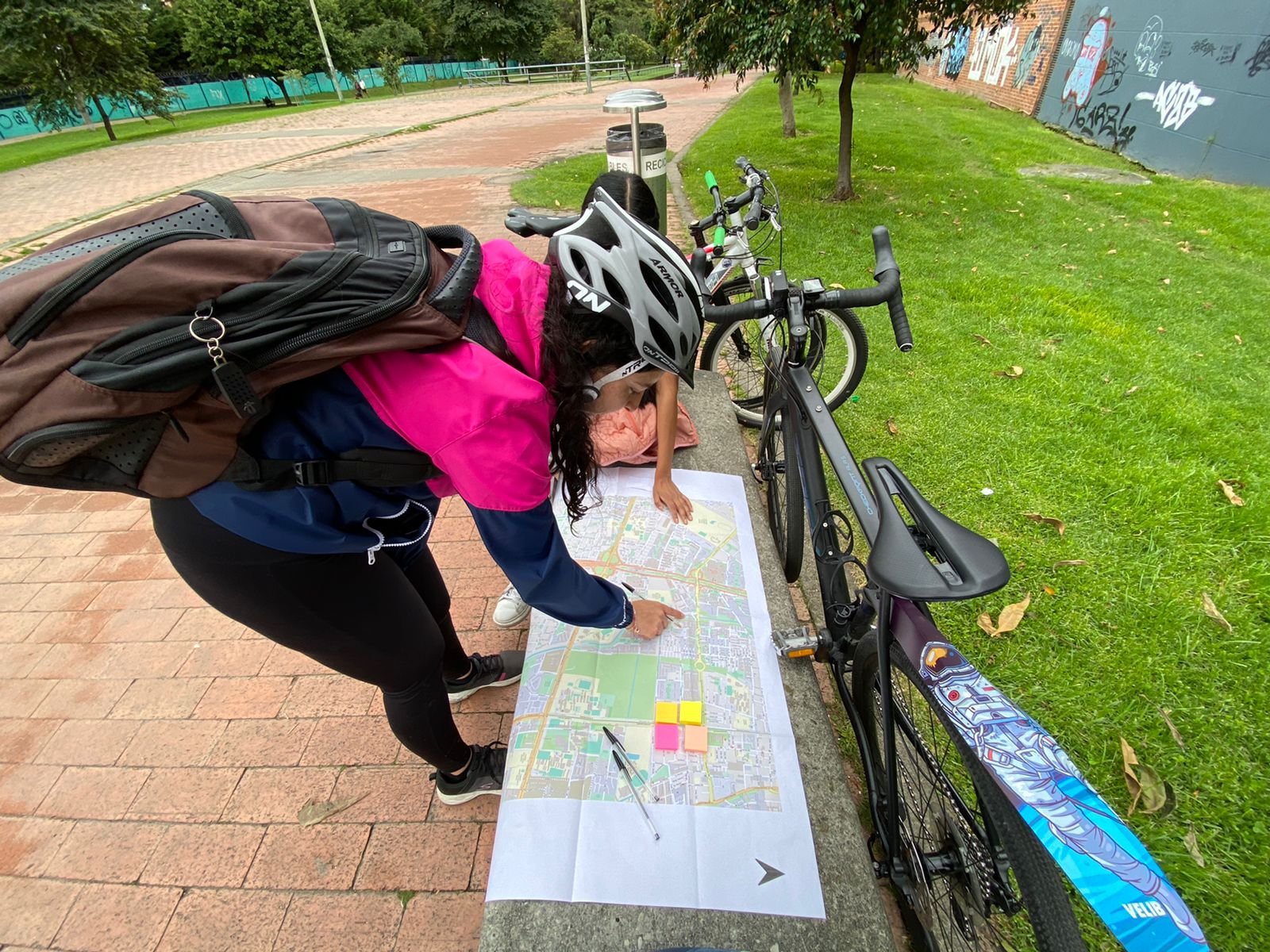In our project, two activities were proposed to raise awareness of the needs regarding safe riding for women and the importance of the gender approach in sustainable mobility: a photography/illustration contest and an experiential route.
The experiential route called "families that matter'' was a didactic activity to raise awareness of the experience of women during care trips. It was held in mid-June. The artistic contest, on the other hand, is currently ongoing. We expect to receive illustrations and photographs from young people of Bogota that show their vision of cycling with a gender approach. We’ve already met with some decision-makers to share findings from the mapping and identify possible solutions to the issues identified. Officials from the Mobility Secretariat attended and the Women Secretary itself, Diana Rodríguez, participated too.
Finally, a round table/forum will be held by the end of August with decision-makers and cyclists to share the findings obtained from the project, particularly from the Citizen Mapping and the local monitoring index. The index aims to allow the city to track the needs, experiences, and perceptions of the city's cyclists through a survey currently being disseminated. The data collected will be shared with the Bicycle Board members.




